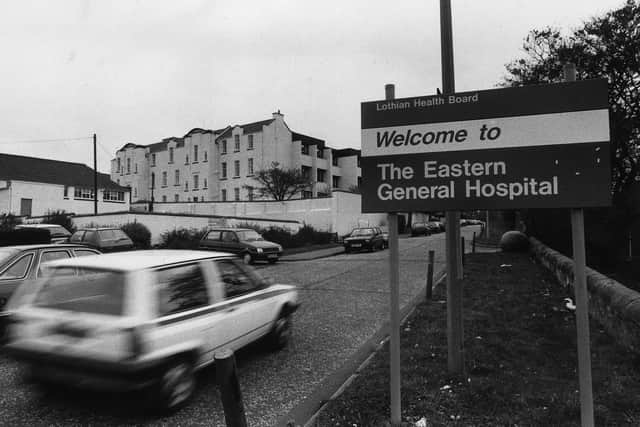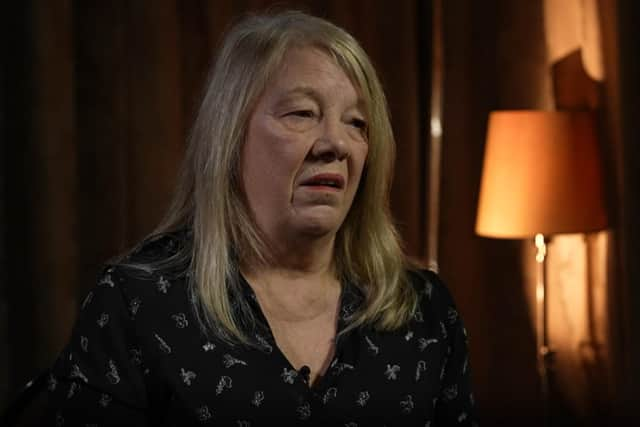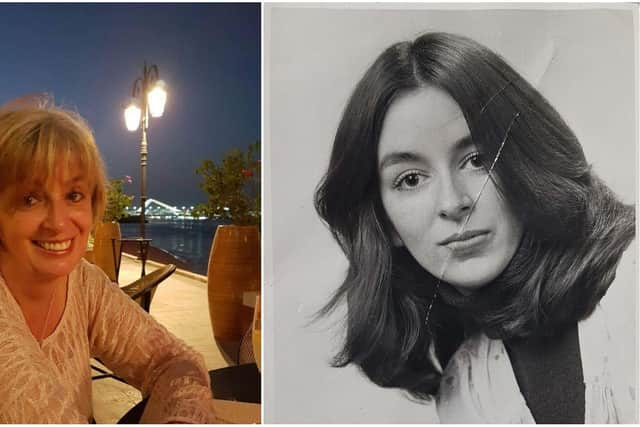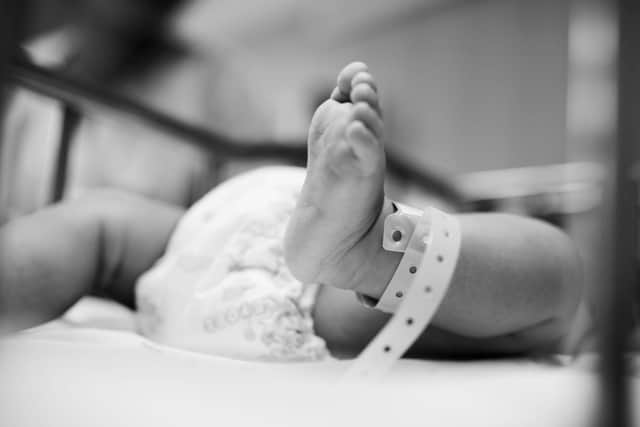Edinburgh nurse breaks 'wall of silence' surrounding forced adoptions as mothers call for justice
Anne Hair, a trainee midwife at the former Eastern General during the 1970s, became the first healthcare professional in Scotland to speak out about forced adoptions and the removal of newborns from unmarried mothers.
It is believed that up to 60,000 women in Scotland were pressured or coerced into giving up their babies between the 1950s and early 1980s because societal norms did not accept unmarried mothers and babies born out of wedlock.
Advertisement
Hide AdAdvertisement
Hide AdIn a short television interview, Ms Hair recalled unmarried mothers not being treated with “dignity and respect” with the women often being spoken about in a “cruel” way by colleagues.
She remembered one teenage mum who wanted to keep her baby.
"She was crying and I remember her trying to tell the midwife how she wanted to keep her baby. I was tearful after it. It just felt it was unjust,” she said.
Parents, religious organisations, social workers, GPs, hospital staff and legal professionals were all present in a system where the wishes of the mother had little, if any, currency.


Ms Hair’s testimony has been welcomed by those women campaigning for an apology for forced adoption practices in Scotland,
Jeannot Farmer, a founding member of the Movement for Adoption Apology in Scotland, said the BBC interview opened up a new front in unravelling the processes that led to a lifetime of shame, pain and stigma for those affected.
The campaign now hopes that others professionals will come forward to share their experiences.
Ms Farmer, whose son was put for adoption after he was born at Bellshill Maternity Hospital in North Lanarkshire in 1979 , said: “While tales are commonly told of embarrassed parents and cruel nuns, little accountability is laid at the door of medical, social work and legal professionals who operated the machinery which facilitated the forcible removal of infants from young women.


“The blind eye turned to their practices allowed women to be humiliated and abused in labour as well as being denied knowledge of their rights and the support available to them. There was no scrutiny of whether apparent written consent was either informed or coerced.”
Advertisement
Hide AdAdvertisement
Hide AdMs Farmer, a retired teacher, became pregnant while a student in Glasgow and made inquiries with social services regarding adoption, but no agreement was made.
She described her treatment at the former Bellshill Maternity Hospital in 1979 as “cruel” and believes “policy and culture” towards unmarried mothers underpinned her experience.
Ms Farmer said: “It became apparent to me that the midwifes were of a mind that my baby was being adopted. I was shown little care and left alone for most of the time, until they decided, against my better judgement, that I should be induced.


"My baby went into distress almost immediately and had to be removed in an emergency forceps delivery. I was cut and stitched with no anaesthetic. I told the doctor to stop and he refused.”
She was then taken to a room and left cold, alone and without pain relief for four hours.
Ms Farmer, 65, was refused a request to see her son and was transferred to Hairmyres Hospital in East Kilbride without her baby.
She said: “The testimony of the nurse is so welcome because it is heartening for us to hear that our evidence is being validated by a professional who was there at the time. When I have told my story to friends who were in the NHS, none of them ever expressed surprise, but it takes a lot of courage and integrity to speak publicly. We are all so grateful to her.”
Another founding member of the campaign, who asked not to be named, said she hoped the midwife’s testimony would help break the “wall of silence” surrounding the forced adoption process.
Advertisement
Hide AdAdvertisement
Hide AdFollowing the birth of her son in 1978, she was separated from her baby as soon as he was delivered, with her signature obtained for a document which she “never read or received a copy of”.


The woman said: “I could hear babies crying in the nearby nursery and I felt distressed wondering which one was mine.
“When a nurse found me sobbing in an empty side room, this led to me being discharged very quickly.
“Anne Hair, in her interview, mentioned mothers being in a state of shock. That would be a fair description of my state not just then, but also for the rest of my life.
“I hope the voice of this caring nurse will encourage other staff who witnessed these inhumane practices to do the right thing, come forward and break the wall of silence.”
The Movement for Adoption Apology in Scotland has also stressed the need for mental health support for mothers and changes to the management of adoption records, which remain closed for 100 years to parents.
The campaign has also called for a permanent memorial to those affected.
The Scottish Government recently called for experiences of those faced by historical adoption practises as it considers an apology. Around 140 responses were submitted, with the consultation closing last week.
Advertisement
Hide AdAdvertisement
Hide AdChildren’s Minister Clare Haughey said: “Our webpage and questionnaire was set up so those affected by this heart-breaking issue could share their views and insights. Since then, mothers, fathers, sons and daughters have come forward to give moving accounts of their experiences. I do not underestimate how painful this may have been and the courage it must have taken. I’d like to thank all those who have contributed.
“Their feedback will be considered carefully. It will help us to understand what support is needed to help these families and I hope we can work together to explore next steps.
“In the meantime, we have started the process of establishing specialist support and peer support groups for those affected.”
Comments
Want to join the conversation? Please or to comment on this article.
